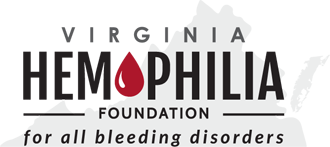Historically, many residential substance use disorder (SUD) facilities have denied admittance to individuals with bleeding disorders – the basis of these denials are most often the use of self-administered, intravenous medications such a as factor replacement therapies. The lack of access to residential addiction treatment facilities, can have very serious, even fatal outcomes for bleeding disorder (BD) patients in acute need of help with their addiction.
Results of a national survey of hemophilia treat center (HTC) providers suggest that the majority of attempts to place patients at a residential addiction treatment facility or at mental health facilities have met with failure. However, interviews with HTC providers who have bucked this trend and secured residential placements have helped generate a document that provides best practices and resources for HTCs endeavoring to successfully refer a BD patient. It is a comprehensive resource that is meant to encompass the various referral stages, including things to consider prior to making a referral, during the referral process, and in the event of a denial.
Best Practices For Accessing Residential Substance Use Disorder Treatment For Individuals With Bleeding Disorders is a product of the Bleeding Disorders Substance Use and Mental Health Access Coalition (BD SUMHAC), whose mission is to advocate for access to appropriate SUD and mental health (MH) treatment facilities for all individuals with BDs. The Coalition plans to develop a similar document centered on access to MH facilities.
Please note that the Coalition is very eager to collect as much information as possible relevant to denials for residential SUD treatment, so that they can continue to refine best practices and enhance support for individuals with BDs. Contact information for reporting these denials can be found in the document.
BD SUMHAC was formed via a partnership between the New England Hemophilia Association (NEHA), Hemophilia Federation of American (HFA), the National Hemophilia Foundation (NHF), HTC providers, and BD community members. Sponsoring organizations include NHF, NEHA, and the HTC at Rush University Medical Center.
SOURCE: NHF News, November 14, 2022
